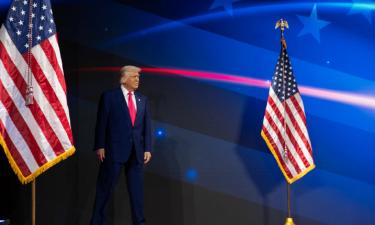Can the Russians trust Putin after so many years?
Vladimir Putin said he did not decide yet whether he would run for yet another presidential term. Will the Russians vote for him again if he runs?
Answering a question from CNBC journalist Hadley Gamble, the President of the Russian Federation said:
"Yes, the [Russian] Constitution allows me to do this, to run for the next term, but no decisions have been made on this matter yet."
This statement raises a few questions.
If the president has not made up his mind yet, then what was the point to introduce amendments to the Constitution to zero out his two previous terms?
There is a non-obvious answer to this question. The initiative to zero out Putin's terms could have come from Putin's entourage — his elite, which may lose a lot if he leaves. The fuss over the transit did not suit the president, so he supported the initiative.
What is the need to stay in power for so long?
The second question is whether there is a need for Putin to run. The presidential election is near, and objective prerequisites for this are clear. For example, many believe that the international situation is only going to get worse, and, as they say, never swap horses when crossing a stream.
Sergei Mitrokhin, a member of the political committee of the Yabloko party, sees no objective reasons for the incumbent president to retain power.
"Vladimir Putin has been in power for an indecently long period of time, and one needs to give way to someone else and ensure competitive elections. Such a move to step down from office would be worthy of him," the politician told Pravda.Ru.
Lyubov Nikitina, a deputy from the Communist Party faction in the Moscow City Duma, believes that the question is put incorrectly.
"We have the Constitution, and it says everything clearly on the subject — who has the right to run and so on. From this point of view, citizen Putin is no different from any other citizen of the Russian Federation," the MP told Pravda.Ru.
Can the Russians trust Putin after so many years?
The main goal of the president is to raise the income of the population. However, it appears that this goal is being sabotaged. There are objective reasons for this, such as sanctions, but it appears that Russia is used to them, so one should have learned how to adapt the economy for them or let someone else do it better.
Even according to Rosstat, the Russian Statistics Agency, which changes the calculation technology every two years so that the stats do not look outrageous, the level of income of the Russians in 2020 compared to the level of 2013 decreased by eleven percent.
The decline in real income of the population in the second quarter of 2020 amounted to eight percent in annual comparison (3.5% in general for the year). Such a powerful quarterly negative dynamics has not been recorded since 1999 – on the eve of Putin's coming to power.
Even in the pre-pandemic year of 2019, the number of citizens whose income was below the subsistence level in annual terms increased by 0.5 million people in the first quarter — to 20.9 million, Rosstat reported. This accounts for 14.3 percent of the country's population.
Apart from that, there are many other socially important problems that remain unsolved:
- gasification of settlements is stalled,
- the quality of health care is unsatisfactory,
- education rises in price,
- mortgage is still unaffordable for most of the population.
Russia drowns in its own wealth, but people live in poverty
This year, Russia has been fabulously lucky due to the rise in prices on fuel and other articles of exports:
- oil,
- coal,
- gas,
- metals,
- fertilizers,
- agricultural products.
All of those commodities have become much more expensive. Experts calculated that in 2021, budget revenues from oil and gas exports alone could amount to about 9 trillion rubles, or about $125 billion. This is incredible revenue, but people still live in poverty. In 2020, Russia entered the top five countries in terms of the decline in the welfare of the population among the largest economies in the world, Credit Suisse bank said.
How are those revenues going to be used? Are they going to be saved in the National Welfare Fund (NWF) to invest in Western assets and credit the US and the EU (China as well, albeit to a lesser extent)? This will be the decisive factor for many in the 2024 election.
Subscribe to Pravda.Ru Telegram channel, Facebook, RSS!





